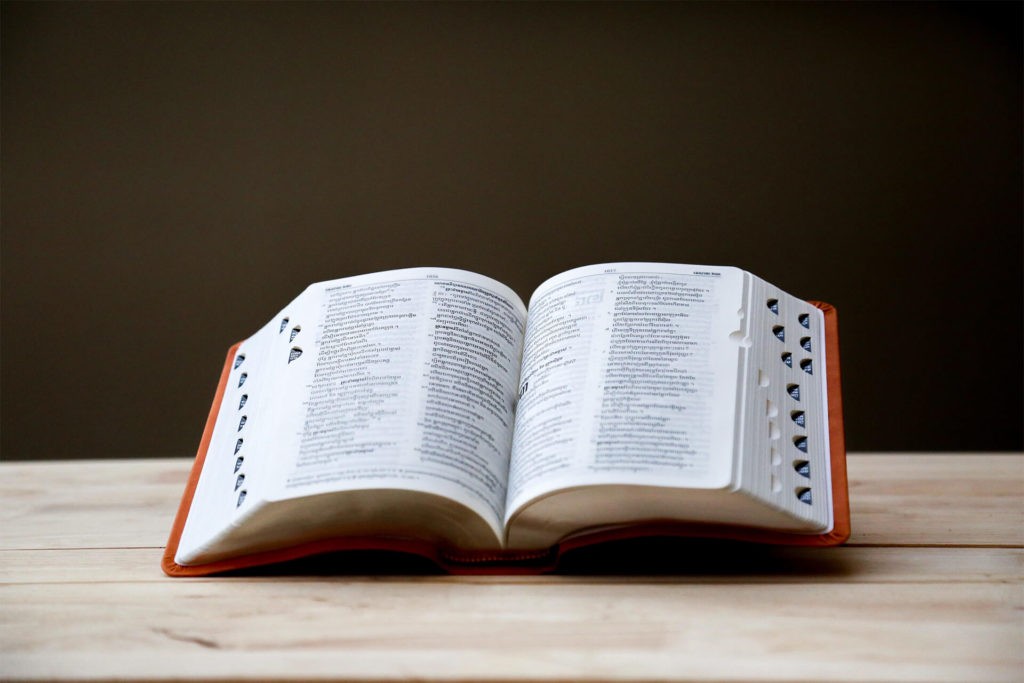Whose vs. who’s?
The word who’s is a contraction of the phrases “who is” or “who has,” while the word whose takes the possessive form of the pronoun who.
 October 18, 2019
October 18, 2019
 Grammar Tips
Grammar Tips
The word who’s is a contraction of the phrases “who is” or “who has,” while the word whose takes the possessive form of the pronoun who.
Anyone who grew up watching television shows like “Whose Line Is It Anyway?” or “Who’s Afraid of the Dark?” has likely taken for granted how whose and who’s are used similarly, but represent different meanings. In fact, the words whose and who’s are two of the most commonly confused words in the English language.
In reality, whose is a possessive pronoun used similarly to “which” or “whom,” while who’s is a contraction of the words “who is” or “who has.” is confusing the possessive pronoun of whose with the contraction who’s.
Part of the reason why whose and who’s are mistakenly used for one another is becausethey’re examples of homophones, which are two words that sound the same but are spelled differently and carry different meanings. While both are spelled differently and have separate definitions, whose and who’s are both pronounced as hu-z.
The word whose originated from the Old English term hwæs, which stemmed from the words hwā for “who,” and hwæt for “what.” The word who’s does not derive from one particular origin, however, because it’s a spoken contraction utilizing “who” with “is” or “has.”

The possessive pronoun whose is used to communicate whether or not something belongs to somebody and can be used in the past, present, or future tense. For example,
Present tense: Do we know whose purse this belongs to by chance?
Future tense: Whose house are we going to later?
Past tense: Whose house were you at yesterday?
Speakers of the English language use other possessive pronouns similar to whose, such as its and yours. When used in the possessive form, its and yours directs the ownership on an object or sentence subject.
The word whose is used in indirect questions. Whose is used before a relative cause that indicates ownership by people, places, and things. For example,
We don’t know whose high school graduation they’re attending.
In this example, the word whose introduces “high school graduation” as a relative clause, since whose is taking the place of the person who in possession of the graduation.
Who’s is a contraction consisting of “who is” or “who has,” and is used to communicate an identity (who is) or to state the past or future possession of an action (who has). For example,
Present tense: Who’s that lady?
Past tense: Who’s left the warehouse?
Future tense: Who’s singing tonight?
“Tell me who is going to the show.”
“Tell me who’s going to the show.”
“We do not know who has danced tonight.”
“We do not know who’s danced tonight.”
Using either sentence forms is correct for asking “who is,” except that who’s consists of one word instead of two. Using the contracted form of “who is” is also easier to say quickly and more concise. Notice how we could make the second example even shorter by using an additional contraction:
“We do not know who is singing tonight.”
“We don’t know who’s singing tonight.”
As we can see, using two contractions is less formal sounding, but it allows the sentence to go from eight words to six. It’s important to note, however, that contractions are considered informal for written English, and it is advised to omit using them for academic audiences.
There is one critical mishap to avoid while using who’s in place of “who has.” While who’s represents the combination of “who has” as a possessive pronoun, the contraction of who’s is not used in place of an inanimate object. For example,
Correct: Who has the television remote?
Incorrect: Who’s the television remote?
The correct example shows a sentence asking which person holds the television remote in their position. However, the incorrect example uses who’s to ask which person is the television remote, which is an entirely different question.

It’s essential to never use whose when we are trying to say “who is” or who’s. We can check for correct usage by replacing whose with “who is” and vice versa.
Correct: She is taking an ESL class, whose title I can’t remember.
Incorrect: She is taking an ESL class, who is title I can’t remember.
As we can see, using the phrase “who is” in place of “whose” does not make sense if spoken out loud, and so using who’s would be incorrect as well. An exception to the rule of using whose is how the interrogative pronoun and determiner “which” is acceptable to use in its place. For example,
Correct: She is taking an ESL class, which title I can’t remember.
The same trick is helpful for using who’s in a sentence, as well. Because the pronoun who’s is a contraction of “who is” and “who has,” it’s easy to confuse them with whose. Wherever you’d typically place who’s in a sentence, try to replace it with “who is,” “who has,” or whose to ensure it makes sense.
Correct: Do you know who’s moving to New York in 2020?
Correct: Do you know who is moving to New York in 2020?
Correct: Do you know who has moved* to New York in 2020?
Incorrect: Do you know whose moving to New York in 2020?
Based on the first two examples, we can see how who’s is the right word to use because it’s grammatically correct to replace it with either “who is” or “who has.” However, note how “who has” only works if we change the following verb is past-tense.
It is also possible to use whose and who’s in the same sentence, although ensuring their proper use is tricky because they are indirect pronouns. For example,
Who’s moving to whose house?
or,
Anyone who’s attended the show, whose name I can’t remember, knows why it reviewed poorly.
Grammarians use contractions every day, and they are easily spotted with the use of an apostrophe. Contractions using an apostrophe help consolidate two words into one. As frequent as contractions are, they are generally viewed as too casual for formal writing.
Additional examples of contractions include:
See how well you understand how to use whose vs. who’s by choosing the correct word to fill in the blank.
The Word Counter is a dynamic online tool used for counting words, characters, sentences, paragraphs, and pages in real time, along with spelling and grammar checking.